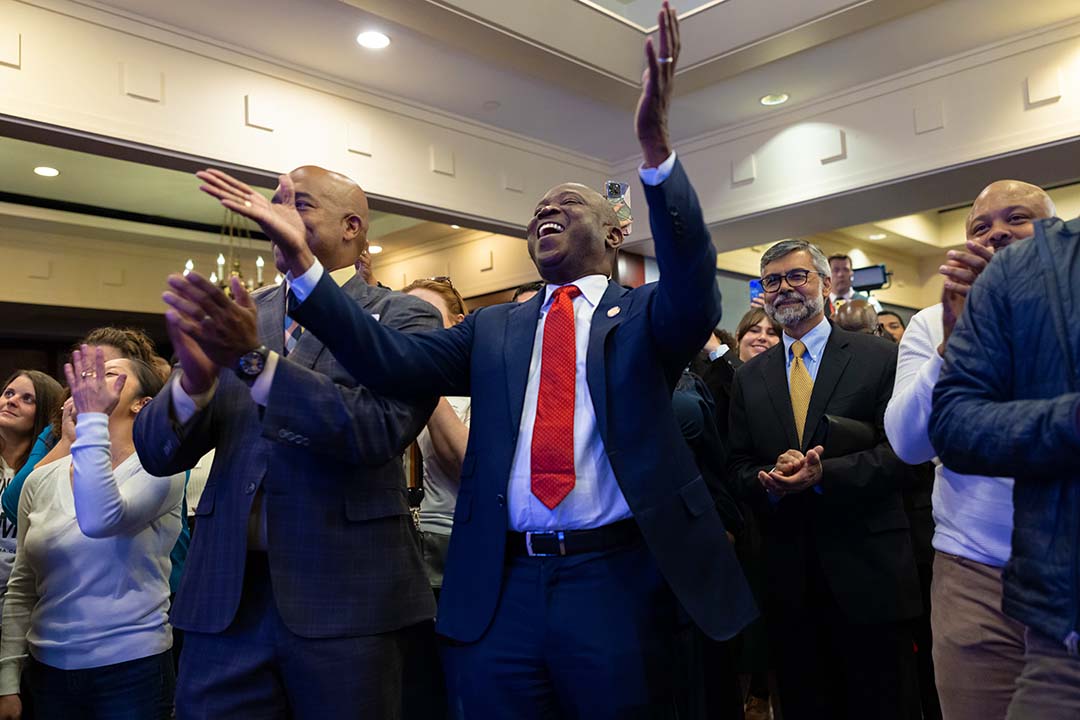In a surprising turn of events, Democrats celebrated significant victories in the November 7, 2023 off-year elections, showcasing the party’s adept use of abortion rights as a key mobilizing force. The Democratic Legislative Campaign Committee’s study revealed that the party outperformed President Biden’s 2020 election results in 21 out of 27 races this year, highlighting the effectiveness of embracing abortion rights as a central issue.
The impact of this strategy was particularly evident in conservative strongholds like Kentucky, where Governor Andy Beshear’s campaign invested heavily in highlighting the harrowing story of Hadley Duvall, a survivor of sexual assault. This, among other factors, contributed to Beshear’s triumph and underscored the resonance of abortion rights even in traditionally conservative areas.
Ohio, a state that former President Trump won by a significant margin in 2020, saw abortion-rights organizations raising three times more in donations than their anti-abortion counterparts. This financial advantage played a crucial role in defeating a Republican-backed effort, championed by the state’s top Republicans, thereby highlighting the influence of abortion rights even in the face of deeply entrenched conservative sentiments.
Republicans, on the other hand, struggled to articulate a compelling message on abortion. The party’s historical stance of simply declaring itself “pro-life” faced challenges following the Supreme Court’s decision to overturn Roe v. Wade. The ensuing messy debate over the specifics of abortion policy, including issues such as rape, miscarriages, and terminal fetal diagnoses, left the party grappling for a cohesive narrative.
Efforts to introduce a 15-week federal ban in the Senate backfired during the midterm elections, becoming a liability for Republicans in key races. In Virginia, Governor Glenn Youngkin’s attempt to present a “common-sense” 15-week ban fell short as Democrats successfully framed the narrative, leading to a loss of control in the State Senate and House of Delegates.
Even some Republicans acknowledged the party’s failure to effectively communicate its stance on abortion. Republican presidential candidate Vivek Ramaswamy, residing in the suburbs of Columbus, called the abortion-related referendum in Ohio a “lost battle” and emphasized the need for the pro-life movement to improve its messaging.
Despite Democratic successes, fulfilling campaign promises on abortion rights remains challenging. President Biden’s commitment to restoring federal abortion rights faces obstacles in the form of Senate dynamics and the filibuster. Additionally, Governor Beshear of Kentucky now faces a Republican supermajority in the statehouse, limiting his ability to legalize abortion in a state with a near-total ban.
While Democrats have an edge on abortion rights in the eyes of a majority of voters, recent polling suggests that some who support abortion rights would still consider voting for Republicans. The 2023 elections revealed vulnerabilities for former President Trump, who blamed the GOP’s losses on abortion, yet remained intentionally vague on specific abortion limits.
Looking ahead, Senate Republicans acknowledge the need to appeal to a broader electorate, including independent and moderate-GOP voters. The call for reframing positions on abortion to emphasize reasonable limits, such as exceptions for rape, incest, and protecting the mother’s life, underscores a shift in strategy for the GOP.
As both parties reflect on the election results, it is clear that the issue of abortion will continue to play a pivotal role in shaping political landscapes. Democrats have successfully leveraged this issue, leaving Republicans to grapple with the challenge of crafting a compelling message that resonates with a diverse and nuanced electorate.
Photo: House Minority Leader Don Scott (D-Portsmouth) cheers as election results are announced during the Democratic Election Night Party in Richmond City, Va., November 7, 2023. (Parker Michels-Boyce for the Virginia Mercury)


